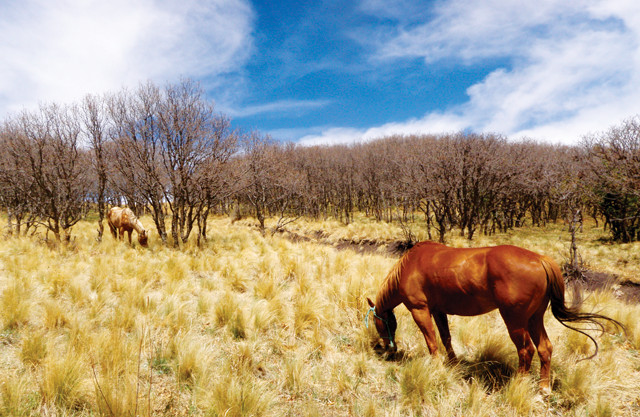
by Mary Caperton Morton Monday, February 2, 2015

The first relatives of horses evolved during the Early Eocene in India, possibly while it was still an isolated island. Credit: Mary Caperton Morton.
Modern horses, rhinos and tapirs — all ungulates with an odd number of toes — belong to a group of animals called Perissodactyla. The oldest Perissodactyla fossils date from the Early Eocene Epoch about 56 million years ago, but the animals’ earlier evolution remains a mystery. Now, a discovery in India suggests that the group likely originated on the Indian subcontinent when it was still an island on a collision course with Asia.
Searching near the edge of a coal mine in the Indian state of Gujarat, a team from the Johns Hopkins University School of Medicine, led by Ken Rose, uncovered a trove of teeth and other fossils belonging to an early Perissodactylan dubbed Cambaytherium thewissi. The fossils date to about 54.5 million years ago, and they provide a partial view of what one of the earliest common Perissodactyla ancestors looked like, the researchers reported in Nature Communications.
The study also provides new evidence in support of the idea that several groups of mammals that appeared at the beginning of the Eocene, including Perissodactyla and early primates, evolved in India while it was still isolated, Rose said in a statement.
“Around Cambaytherium’s time, we think India was an island, but it also had primates and a rodent similar to those living in Europe at the time,” he said. “One possible explanation is that [while en route toward Asia] India passed close by the Arabian Peninsula or the Horn of Africa, and there was a land bridge that allowed the animals to migrate” from the island to Africa and beyond.
© 2008-2021. All rights reserved. Any copying, redistribution or retransmission of any of the contents of this service without the expressed written permission of the American Geosciences Institute is expressly prohibited. Click here for all copyright requests.